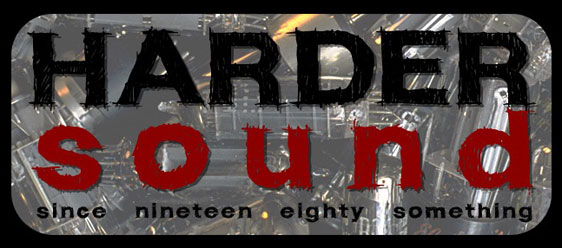![]()
I mix everything in Scope. Currently I'm working on reggae and DUB. Not dubstep or techno dub, but original Jamaican style dub reggae with live instruments played by really good players.
Scope is at the center of my studio. It ties everything together inside the computer with everything outside the computer. I have older external effects and microphone pre-amps, not to mention sixteen inputs from the studio to the control room, all that needs to get into the computer for recording, XITE-1 and the A16 Ultra do that for me.
 |
All those inputs and outputs show up in my
project window where I can patch in ways that are not natural or not
practical in a strictly analogue world. For example, patching a voice
through a guitar amp or the filter section of a Minimoog (Minimax) can be a
nice idea, but by the time you get it all setup in the analogue world the
vibe is gone or more importantly, time is gone. Not to mention going back
to that exact setup later on can be a problem.
In Scope these issues are not a problem. It doesn't take long and I can store and recall all setups. I can do it all with out investing in more cables or patch bays and it doesn't take up any space. Marvellous! |
DUB mixing is the kind of thing that Scope can really excel at. Once you have a controller (like the 1600x or the BCR2000) possibilities are vast for DUB mixing. Even so, I tend to recreate classic DUB effects using things like Celmo's Ganja dub delay (a free 3rd party plug-in) and the stock stereo resonator in scope. Those few tools alone and you're off to planet DUB! Of course you can record all those controller moves into your sequencer and edit, automate and refine. I tend to like the one of a kind approach that doesn't automate all that stuff, but it's a possibility with Scope and the XITE-1.
I've recently acquired a Behringer BCR2000 (MIDI
Controller), so
for my latest project recording Mello
G's second album, I'm now mixing using the BCR2000 for the Scope
mixers giving a lot
more freedom than just mouse and screen. Especially for muting and
fading, it's great and kicks ass over what I had before for remote mixing.
No matter how much gear you have, owning a studio is all about the people
who come there and what they want. I find I can meet very specific needs
with my current setup. For example, reggae drummers are always looking for
a bass-heavy mix to lock the rhythm section together but guitarists want to
hear a bit more of the piano and vice verse so they can lock together with a
solid reggae "skank". It's not a problem for me to setup two separate
monitor mixes (or even 3) with Scope to accommodated those needs.
TOO MUCH BLOODSHED by HADA DAN YAAD
Andrew Harder 2010
